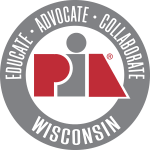PIA’s Top 10 Articles of 2022

The final days of 2022 are upon us, and all eyes are turning toward 2023. Before the calendar changes, let’s look back at the top articles for our Newsline readers in 2022. Happy New Year!
In the aftermath of the pandemic, with a recession looming ahead, analysts are predicting difficult times in the insurance industry in 2023 – the likes which have not been seen since 2008.
PIA has been advocating to eliminate unnecessary requirements on responsible agents in the new Medicare rule from the Centers for Medicare and Medicaid Services. The new rule was intended to discourage dishonest marketing practices but expands the definition of a third-party marketing organization to include agents. Agents are a trusted resource, and these new requirements are unnecessarily burdensome on good actors in the Medicaid marketplace. PIA is supporting newly introduced legislation to remove agents from the expanded definition in the rule.
Based on recent survey results, consumers are not inclined to install driving behavior apps on their mobile devices unless it would lower their premium rates by more than half. In addition, the majority of respondents believe no discount is worth installing smart devices in their homes that would share data with their insurance companies. Interesting insights as more technological options become available to lower rates in the insurance marketplace.
Talk of a coming recession has continued to build throughout 2023, but despite the pervasive pessimism, there are many leaders reporting a positive outlook on the future of the economy. Companies are taking actions to prepare by reducing budgets and increasing prices, while also attempting to resist the urge to slow hiring or delay other investments.
In October, PIA and the American Insurance Marketing and Sales Society (AIMS) announced their merger. This move will allow PIA to utilize its resources to continue to build up the CPIA designation, creating a partnership that will redefine the future of insurance education.
In June, the Wisconsin Supreme Court became the next in a line of many to confirm that the presence of COVID-19 does not constitute a physical loss or damage to property. This decision overturned a previous decision by a Milwaukee judge who had previously ruled in favor of Colectivo Coffee Roasters.
In May, Ariel Rivera represented PIA at the hearing of the House Financial Services Committee. He shared with the committee the importance of the role of the agent in the program, listening to agent input in the rollout of Risk Rating 2.0 and the importance of long-term reauthorization to provide certainty to consumers and all involved with the program.
Despite the efforts of corporations worldwide, fraud continues to be a growing issue, plaguing insurance more than any other industry. Fraud attempts are on the rise, including “soft-fraud,” where consumers are creating fraudulent applications in order to receive better rates.
Many of the issues that have been impacting the issue for the last year were already apparent at the start of the year. The trends from supply chain issues, inflation, and the extreme costs of the many hurricanes and natural disasters during 2022 are still in effect going into 2023.
As reported, from 2020 to 2021 losses from funds transfer fraud was on the rise, having increased by 69% and frequency has increased by 21%. Small businesses were also named as especially vulnerable to attacks.
